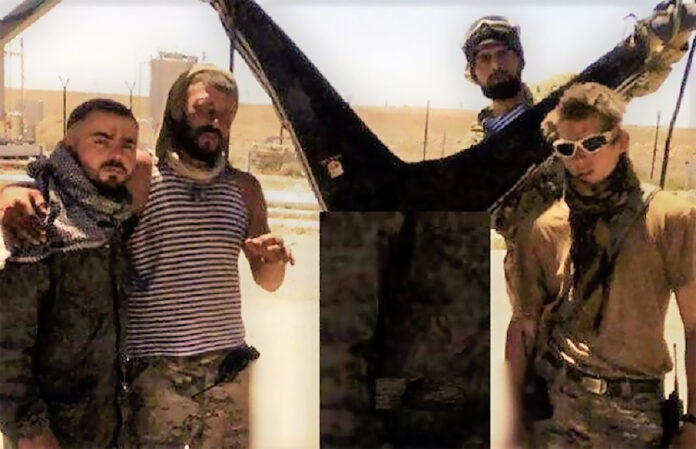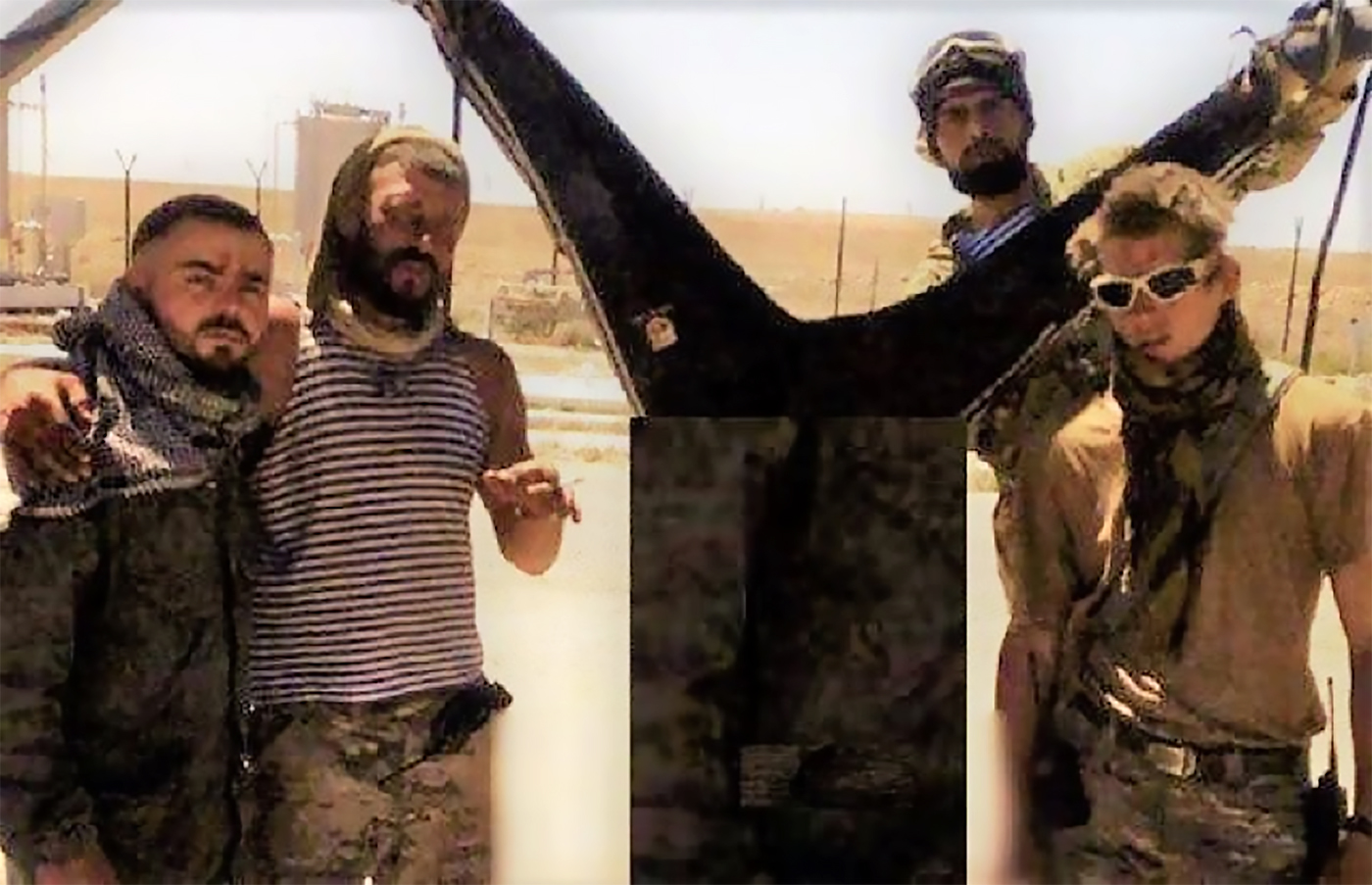Independently of any moral dimension, the practice of war crimes also says something about the strategy of the master of the Kremlin. If one can debate the existence of such a strategy on a global level, the strategy of crimes is the counterpart and the expression of the ideological offensive against the principles of law and freedom that are those of democracies. It is time to name these crimes—whose instigators and perpetrators are liable to the International Criminal Court—and to perceive their scope. To look the other way would be both to flout our values and to refuse to understand the nature of Vladimir Putin’s regime.
It has become a commonplace to assert that Western individuals are largely insensitive to crime, at least outside the borders of their country. Faced with the great massacres of our time, some people are certainly indignant, but the feeling of an intimate wound of our humanity, if it existed at all, tends to disappear quickly. No less trivial is the observation that the incessant flow of information and images dulls our attention and equalizes and, therefore, relativizes the most insignificant and the most dramatic. In fact, there are many States where crime, sometimes mass crime, was a common and lasting practice: there is no need to recall the examples of Nazism, Stalinism, Maoism or regimes as monstrous as Amin Dada’s Uganda, Charles Taylor’s Liberia (guilty of crimes against humanity in Sierra Leone) and Pol Pot’s Cambodia. More recently, we think of the genocide of the Tutsis in Rwanda, the current repression by the Burmese generals, and, in the same country, the massacres of Rohingya, and the crimes against humanity committed by Omar al-Bashir in Sudan. When a regime behaves in this way, it is normally the case that it is ostracized by civilized nations. There comes a time when the immensity of the crimes, their regularity and, so to speak, their planned, systematic and methodical character exceed what is already questionable tolerance. And let us not mention here the crimes of terrorist organizations.
This fluctuating and fickle attention of public opinion should not, in principle, be a feature of democratic governments. Let us not gloss over the erratic promise of ‘never again’. There is a time when the question is no longer one of moral commitment and soulful resolve, but one of law. War crimes, crimes against humanity and genocide have been codified by international law and a tribunal, the International Criminal Court, has been established—following those of Nuremberg, for the former Yugoslavia, for Rwanda and Sierra Leone. If morality does not oblige us, at least the law does. We could certainly speak here of Xi Jinping’s China and of some other regimes, but it is the Russian case that will hold our attention here.
Putin’s Russia has deliberately, intentionally, methodically committed massive and perfectly documented war crimes in Syria. It has murdered more Syrian civilians than even ISIS, rightly considered the cruelest terrorist organization. It has unwaveringly supported, alongside Iran, the regime of Bashar al-Assad guilty, to this day, of the worst crimes against humanity and war crimes of the 21st century. The Russian regime had already experienced these crimes during the second Chechen war, to the point that in many ways Grozny is like a dress rehearsal for Aleppo. On a lesser scale, perhaps, because of the nature of the war Russia waged, major human rights violations, which can be characterized as war crimes, were also committed in Georgia, as recently recognized by the European Court of Human Rights, as well as, in all likelihood, in Ukraine.
Without the same type of criminal incrimination being used, it should be remembered that several hundred investigative journalists and dissidents have been murdered on Russian soil, and the continuous abuses against the Crimean Tatars are also demonstrated. Added to this are assassinations or attempted assassinations on European soil (some of them using chemical weapons prohibited by international law or others, such as the provoked explosion of an ammunition depot in Vrbětice (2014) in the Czech Republic that cost the lives of two people, which can be equated with terrorist acts. War crimes, and even crimes against humanity, have also been committed by the Russian private militia Wagner in its various theaters of operation, from the Middle East to Africa and, of course, in Europe. A recent report by the French radio RFI mentioned such abuses in the Central African Republic.
Perhaps there should be no surprise here. Those who read Catherine Belton’s masterpiece, Putin’s People, to which we will return, will see the troubled links of the regime and its leader with organized crime, links that go back a long way. But what strikes us most here is both a silence and a lack of understanding of the significance of the crime on both a geostrategic and political level.
The silence is that of the Western leaders. To be sure, they regularly and, fortunately, increasingly denounce the Kremlin’s actions, whether it be the Russian attack on Donbass and the annexation of Crimea, the attempted assassination of the Skripals and Navalny, and the increasingly ferocious repression in Russia. But they have done little or nothing to designate the Kremlin’s actions as war crimes. Certainly, in 2016, the French ambassador to the United Nations, François Delattre, rightly compared the bombing of Aleppo to the bombing of Guernica in 1937, but we have not seen in the mouths of Western leaders this incrimination, whose criminal consequences are legally clear. This absence of designation is, in fact, equivalent to a minimization effort. However, it is indeed this trivialization that the Kremlin was seeking.
Precisely, the democratic governments did not perceive the double significance of these crimes, in particular in Syria, which were not collateral effects of other war operations, but voluntary acts and the heart of the operations. It was indeed a question, in support, or even replacement, of the Syrian army, of terrorizing the civilian population, of massacring or throwing the inhabitants on the roads. Putin’s aim was to demonstrate that human rights, international law, especially humanitarian law, and the very principles on which international organizations are based, had become obsolete. He hoped that democratic governments would not lift a finger to defend and enforce them. He was not disappointed. Worse still: democratic governments not only humiliated themselves by using the classic empty words of diplomacy (concern, deep, even very deep concern, etc.), but they also locked themselves into an involuntary denialist rhetoric. This was the case when they regularly asked Russia to put pressure on the Assad government to stop its abuses against civilians, even though the Kremlin was a driving force behind them, driving and enabling them. We will not argue here about the existence or not of a well thought-out strategy on the part of Putin. On the ideological level in any case, his strategy was clear.
This strategy is consistent with his offensive against the West and his politically liberal principles. On the one hand, Western leaders seemed to be largely ready to admit intellectually the existence of a Kulturkampf against the liberal principles of the West; on the other hand, they failed to connect this ideological struggle with the external criminal action of the master of the Kremlin. Nor do they perceive that his propaganda, which aims at blurring the boundaries between right and wrong, just and unjust, good and evil, can only benefit from this lack of legal categorization of his actions. How can we also take seriously the war crimes committed on Putin’s orders and, at the same time, warmly shake his hand, send him smiles or tap him on the shoulder? Would we have adopted the same gesture towards Osama Bin Laden or Abu Bakr al-Baghdadi? How could the public mind not be softened, disoriented and filled with the confusion that the Kremlin intends to instill in it?
We have let go, certainly for lack of courage, but also — and perhaps this is even more worrying — for lack of intelligence. If we trivialize crime, we will have lost the moral confrontation, but also the strategic battle.
To go further, some of the author’s essays on this issue in English:
- “Syria’s war of extermination signals the end of the international community”, The Conversation, October 12, 2016.
- “Silence must not obscure the crimes committed in Syria’s Idlib province”, The Conversation, March 31, 2019.
- “Enough Warnings: EU Must Act on Russian Killings”, Politico, May 5, 2021.
International and security affairs analyst, former head of department at the General Planning Commission, lecturer at Sciences-Po Paris, author of three official reports to the government and 22 books, including Quand la France disparaît du monde (Grasset, 2008), Le Monde à l'horizon 2030. La règle et le désordre (Perrin, 2011) and, with R. Jahanbegloo, Resisting Despair in Confrontational Times (Har-Anand, 2019)




